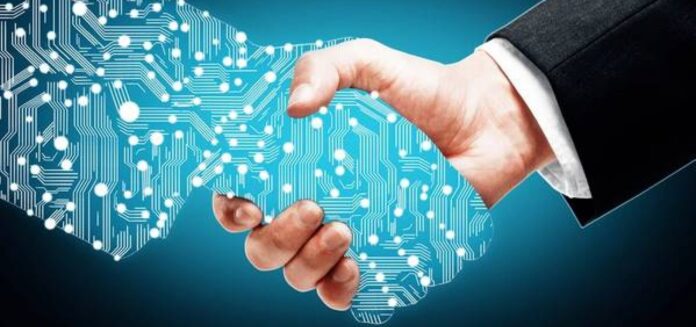The digitalization of diplomacy has led to profound changes in MFAs (ministries of foreign affairs) across the world. This change has structural, normative, and practical dimensions. Structurally, most MFAs now have digital units tasked with authoring digital content and analyzing the social media output of other actors. In many MFAs, social media is used as an analytical tool that helps detect disinformation campaigns and anticipate future shocks to the international system such as protest waves and revolutions. Moreover, MFAs have institutionalized the use of digital technologies through training, drafting guidebooks for diplomats venturing online, and identifying best practices. From a normative perspective, diplomats and MFAs have embraced the social media norm of authenticity. MFAs now adopt a unique online tone to attract followers, whether through humor, rage, or cynicism. Digital technologies have also altered how diplomats practice their craft, with negotiations now taking place offline, on Zoom, and on WhatsApp. However, the consecutive launch of innovative digital technologies demands a much more profound change in MFAs’ structure, as digital units are replaced by Tech Desks staffed by Tech Diplomats who are experts in technology.
The past few years alone have seen a global AI frenzy, with Generative AI tools such as ChatGPT, Claude, and Gemini being eagerly adopted by individuals, companies, and institutions. Many have asserted that there is now an “AI Arms Race,” with nations viewing artificial intelligence as a national security resource due to its application in military weapons. Moreover, AI is viewed as a national security concern given its ability to produce and disseminate false content be it images, videos, doctored memos, or fabricated confidential documents.
Although AI has security dimensions, it also has diplomatic aspects. These include regulating the development of AI to mitigate its abuse or misuse toward nefarious ends such as disinformation or cyberattacks. But effective regulation must be global. An EU ban on AI development will do little to stop other countries from developing ethically compromised AI or from using AI in harmful ways. Second, Generative AI poses a substantial challenge to intellectual property rights, which again requires a global framework to be effective. Third, even the integration of AI into weapons requires global accords to decide who is legally accountable for an AI weapon firing on an illegal target, such as an aid convoy. Who is responsible for such automated weapons? Who bears legal responsibility? The AI? Its developers? The nation that deployed it?
Many believe that AI regulation is impossible given the paralysis of international bodies and regional and global tensions between nations. Indeed, it is almost impossible to believe that the UK and Russia will sign an AI accord while the war in Ukraine rages on, or that the US and China will reach an AI accord given their global rivalry over power and prestige.
A different view is that technological challenges can be used by states to reduce tensions and revitalize multilateral institutions. There is little that the UK and Russia agree on at the moment. But both nations agree that AI poses a danger to their states. Authoritarian regimes present themselves as confident, yet they are inherently insecure, always fearful of a popular revolt. AI fakes, ranging from doctored visuals to government memos, have the potential to ignite such unrest. The right AI image, published at the right time, may serve as the tipping point that topples regimes. Just as social media helped depose tyrants in the Middle East, AI fakes can threaten regimes in Russia or China. From a strategic viewpoint, these shared concerns could serve as the basis for a bilateral accord regulating the development and use of AI and creating shared mechanisms for dealing with AI abuse.
The purpose of such an agreement would be threefold. First, the accord would require intense negotiations between Russian and UK diplomats, facilitating trust and understanding. The trust created when discussing AI could then be used to discuss the Russia Ukraine war. Second, the accord could be jointly marketed among allies, with Russia lobbying China and the UK lobbying the EU. Once enough countries had joined, the accord could become a global framework negotiated at the UN. Third, such an accord would also deal with issues that generate tensions between states, such as access to rare earth minerals and the global sale of chips, both crucial for AI technology.
The same is true of cryptocurrencies. Many regimes have moved to block the use of cryptocurrencies, fearing citizens’ ability to transfer funds abroad and damage the local economy. China has entirely banned cryptocurrency. Yet such a ban is limited if US crypto brokers accept transfers from China. A US–China accord on cryptocurrency could also open lines of communication, foster trust, and serve as a steppingstone to discussing other matters such as Taiwan.
Achieving this, however, requires that MFAs have diplomats who are proficient in these technologies, who understand how they operate, what challenges they pose, what opportunities they create, and how each country views them. An American diplomat from the China desk will be unable to understand the minutiae of a crypto accord. MFAs thus require tech diplomats who are trained in negotiations and are also domain experts in technology. Tech diplomats will have to grow and remain in Tech Desks. Their skills and deep understanding of technology will be less transferable than other diplomatic skills. This may generate opposition in MFAs, which traditionally train and develop diplomats through various postings. A diplomat may spend several years on the public diplomacy desk, then move to the Africa desk, and finally serve as deputy head of mission in Brazil. This prepares the diplomat for the ultimate task of being an ambassador abroad. But individuals from the Africa desk, who are AI illiterate, will be of no use to the Tech Desk, while Tech Diplomats who are experts in crypto may be of little use to the Public Diplomacy desk.
This means that Tech Desks will become a technological silo within MFAs, at least in the short term. But as technology keeps evolving, the Tech Desk’s centrality to the work of an MFA will grow, leading to collaborations between desks. An AI accord between the UK and South Africa, for instance, would be jointly negotiated by diplomats from the Tech Desk and the Africa Desk. Tech diplomats will also serve abroad in multilateral hubs dealing with the legal regulation of AI, autonomous weapons, and intellectual property rights in the age of Artificial Superintelligence. And as MFAs open more embassies in tech hubs, they will require tech diplomats to help create relations between states and technology companies. Without Tech Desks, nations will be unable to leverage technology concerns to achieve wider foreign policy goals.













